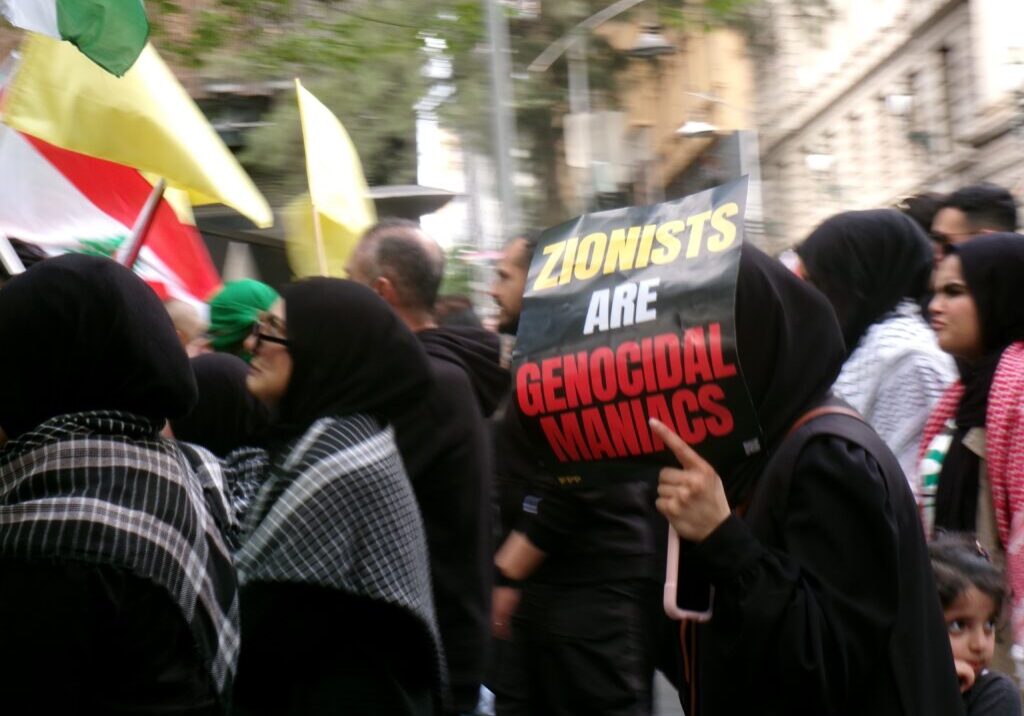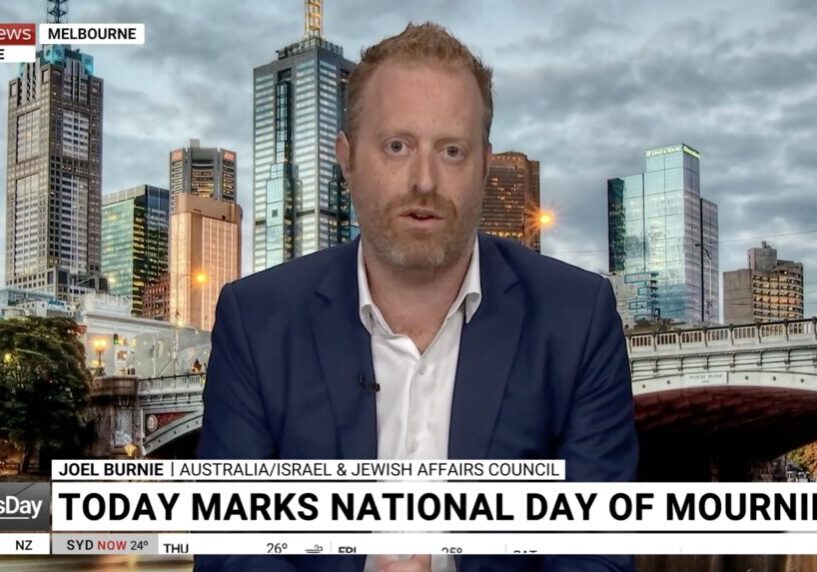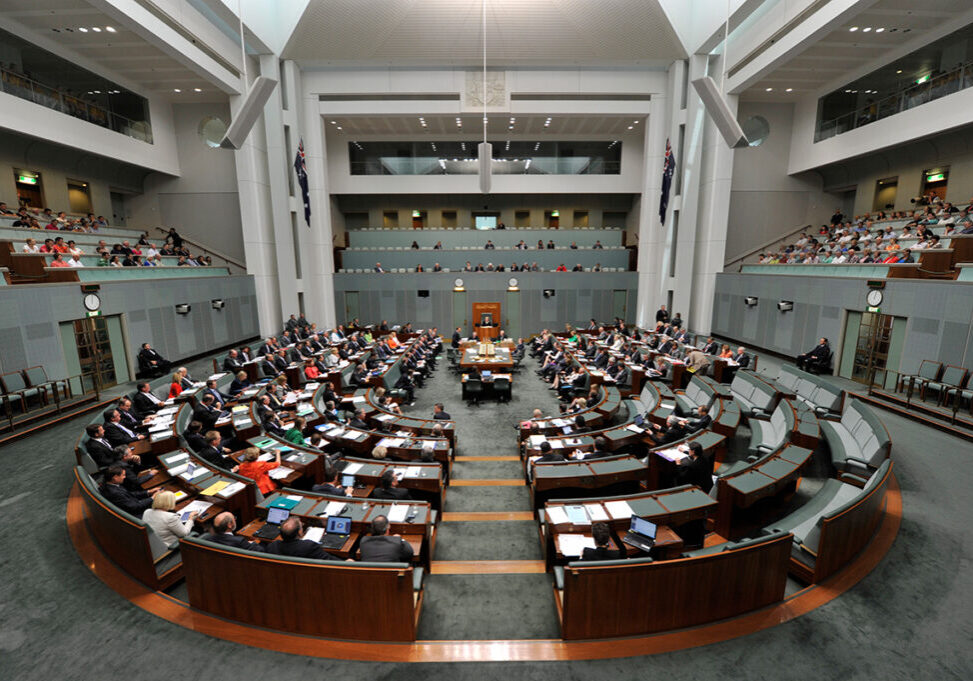Australia/Israel Review
Asia Watch: Volunteers Abroad
Jun 30, 2014 | Michael Shannon
Michael Shannon
Indonesian jihadists periodically swarm the streets to noisily proclaim their intention to fight alongside their Muslim brethren in various Middle East hotspots, but these displays seldom result in verifiable action abroad.
Now, there is no doubt that Indonesians are joining the procession of jihadists to Syria and Iraq, sparking fears they will revive sophisticated militant networks when they return and undermine a decade-long crackdown that has crippled the most dangerous cells.
A video briefly appeared on YouTube before being removed: a ragtag group of men wearing balaclavas – including former soldiers, university students, businessmen – spoke in Indonesian. One of them declared it the will of Allah that Muslims should join the jihad in Syria and Iraq, while another called on the police and military to repent. He urged them to abandon the security forces and refute Pancasila, Indonesia’s pluralist state ideology, calling it a pagan ideal.
The video appeared before the Islamic State of Iraq and Syria, the Sunni militant group known as ISIS, captured the Iraqi cities of Mosul and Tikrit on June 10 and 11, reflecting the growing attraction that the Sunni extremist group holds for the most militant jihadists from Indonesia, Time magazine reported.
Indonesia estimates that 60 Indonesians have travelled to Syria and Iraq to fight but experts say the figure is closer to 100 and growing fast.
There are no laws prohibiting Indonesians from joining foreign militant groups and Islamic organisations have openly held fundraisers for ISIS. Radical Islamic websites, such al-Mustaqbal and VOA Islam, are publishing pro-ISIS news stories, describing its takeover of Iraqi cities as the “liberation” of Sunni Muslims in Shi’ite-majority Iraq.
Most Indonesians are Sunni Muslims and tensions with minority Shi’ites have intensified in recent years, so returnees from Iraq would likely exacerbate sectarian clashes.
Indonesia has had no significant terrorist bombings for around five years as the Jemaah Islamiyah network crumbled, leaving only splinter groups and small cells with little capacity, partly due to a lack of overseas combat and weapons experience.
“There’s not much going on with jihad in Indonesia for militants anymore,” Taufik Andrie, a terrorism expert at the Institute for International Peacebuilding in Jakarta, told AFP. “There are just splinter groups with no resources or support, so many are inspired by what’s going on in Iraq and Syria.”
“When they return, they will be seen as high-profile jihadi. Young people will come to them for training, to form new groups, to plan attacks, to teach how to fight and make bombs,” he said.
The combination of war experience, radical ideology and global jihad connections is one that fuelled Indonesia’s first big wave of Islamist terrorism in the early-mid 2000s, as hardened veterans of conflicts in Afghanistan and the southern Philippines returned home with an audacious agenda that wreaked deadly havoc for several years.
A similar concern is held for the way these hardened cadres can infect Indonesia’s network of Islamic schools. Precedent shows that when veterans are allowed to become teachers in these institutions, they not only preach their militant ideology but also transfer their war experience.
There have now been calls for a more intensified deradicalisation program to be carried out by the National Counterterrorism Agency, with the involvement of the Religious Affairs Ministry.
The Government’s current deradicalisation drive has long been criticised for failing to reduce the number of young men signing up for the hard-line Islamist cause, largely because of the ease with which hardened terrorists can proselytise impressionable followers in Islamic schools and in prisons across the country.
The outcome is not only the danger of terror attacks against Western targets, but continued violent intolerance of minorities including Ahmadiyah and Shi’ite Muslims, Christians and others.
Only recently, a hard-line Islamic mob attacked a Catholic prayer meeting at a home in Yogyakarta with clubs and bladed weapons. The uniformed attackers identified themselves as the subordinates of the cleric Jafar Umar Thalib, the former commander of Laskar Jihad [Jihad warriors], warning that any further non-Islamic prayer gatherings would meet the same response.
Laskar Jihad, previously thought to be defunct, first emerged in 2000 to recruit militants for the vicious Muslim-Christian sectarian strife that rocked the Moluccas during that period.
To complete an unsettling picture, a Nazi-themed cafe in Bandung that closed shop after sparking international outrage reopened on June 21 with its walls still bearing swastikas and a painting of Adolf Hitler, AFP reported.
The “SoldatenKaffee” closed last year after international media reports prompted death threats and accusations of inciting racial hatred, but the owner said it would reopen with a broader World War II theme and dispense with the swastikas. But at the reopening, three huge iron eagles bearing swastikas were on display, as were WWII Nazi propaganda posters.
Tags: Antisemitism, Indonesia






